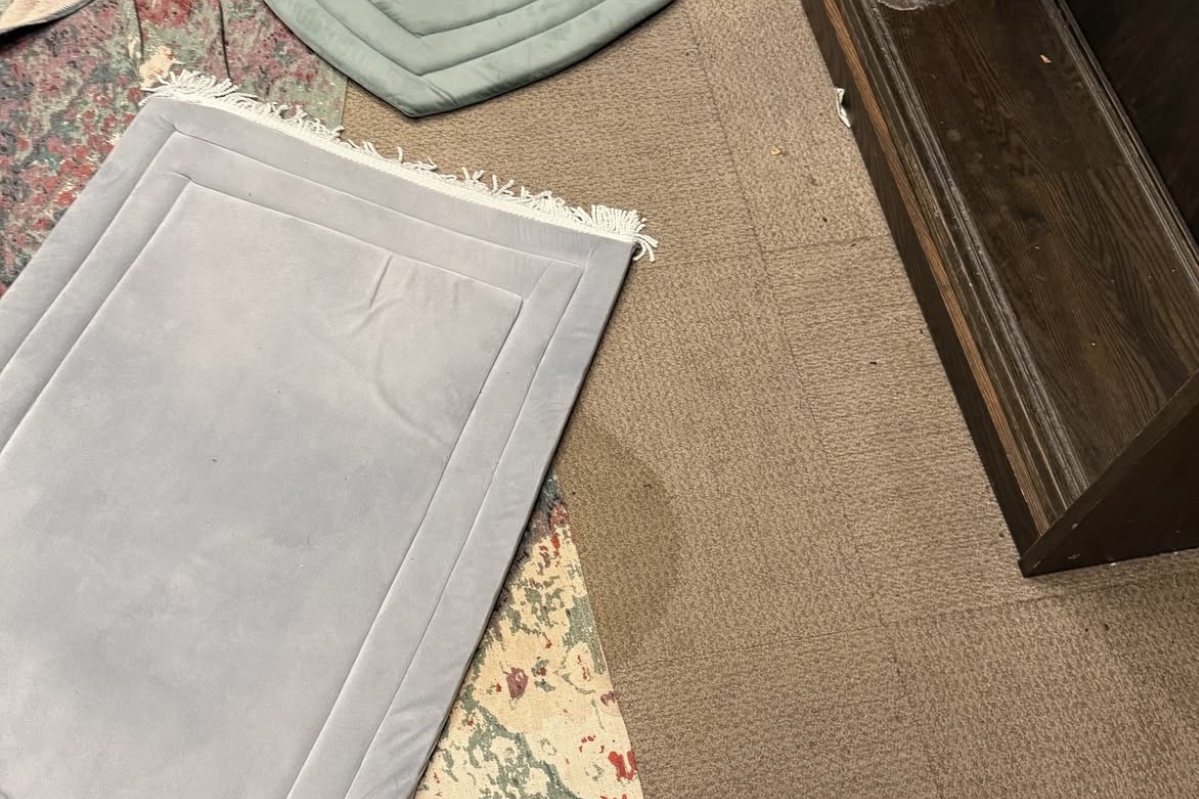On the night of Thursday, April 3, photos of the desecration of a prayer room in Bobst Library used by members of NYU’s Muslim community began to circulate. The perpetrators who vandalized the prayer room urinated on prayer mats and etched inappropriate images onto the walls. Students, rightfully outraged by this act of hate, quickly took to social media, and the Black Muslim Initiative and Muslim Student Association posted a joint statement about the incident on Instagram — which is where I first heard of the vandalism.
After scrolling through numerous posts, I immediately checked my email to see if NYU had issued a statement or posted on social media responding to this incident, but found nothing. The following morning, students received an email from Campus Safety head Fountain Walker condemning the attack, stating that an investigation was underway and resources had been offered to affected students. The university also reposted a six-sentence-long statement issued by NYU spokesperson John Beckman to its Instagram story. Though the etched phallus was signed with the letters “AEPI” — a reference to the unaffiliated Jewish fraternity Alpha Epsilon Pi — all university communications failed to mention it or indicate they would investigate that aspect of it.
An instance like this calls for President Linda Mills to issue an immediate statement, given that this hate crime affected a significant portion of the greater NYU community. National news outlets even got to covering the incident before Mills released a statement on Sunday afternoon — nearly three days after the incident.
The university’s response to this hate crime was both frail and delayed. What NYU at large has demonstrated through its delayed communication regarding the act of Islamophobia at Bobst is that there is a distinctly different protocol for responding to things that affect different groups of students. Even though NYU could release a timely memo about air quality on June 18, 2024, it took the university’s president three days to publicly condemn a attack. This minimal response did not follow the precedent established from previous university communications given that throughout the last two years, students’ inboxes have been filled with university memorandums and letters from the Office of the President regarding a wide variety of things happening on campus.
In a previous statement issued on Dec. 12, 2024 from the Office of the President, Mills recounts a separate series of incidents that had occurred at Bobst Library within a 24-hour window. In the statement, Mills notes that “graffiti was found that directly targeted members of our community with threats of violence.” This act of vandalism which targeted community members is oddly familiar to the current situation — the major difference being Mills’ response time.
This incident and the university’s response are not unique, but rather are a result of NYU’s selective engagement with intolerance on campus. Since the 2023-24 academic year, the university has been extremely reactive when faced with any claim, evidenced or not, of antisemitism occurring on campus. At the Gould Plaza encampment on April 22, 2024 the university sent out a memorandum saying they “learned that there were intimidating chants and several antisemitic incidents reported,” NYU leadership called in the NYPD leading to the arrest of over 100 individuals. Many of these reports of antisemitism were not accompanied with any evidence of hate speech being used and were not part of the student encampment.
Nevertheless, NYU has gone so far as to create new a Title VI office, headed by a man with connections to the Anti-Defamation League, change the student code of conduct to make “Zionist” a code word for antisemitism, and have arrested and suspended students and faculty who have exercised their right to protest under the guise of fighting antisemitism. But in response to this very real hate crime that threatens the student body, similar action for Muslim and Arab students will likely be nonexistent.
NYU has failed to apply the same urgency to addressing Islamophobia and largely ignored the growing threats faced by Muslim and Arab students on campuses nationwide. While pro-Palestinian students at NYU, particularly those who are Muslim and Arab, have faced harassment and doxxing — most recently from the far-right Zionist group Betar — NYU has made no public condemnation of those perpetrating this harassment or taken protective measures for students. The university’s silence on Islamophobia, as well as its negative framing of student protestors as dangerous and antisemitic, has allowed this intolerance to fester at our university.
When President Linda Mills finally issued a statement in which she expressed that she was “stunned” over the vandalism, her words felt very hollow. She should not be stunned as this is not an isolated act of hate, but a reflection of her and other university leadership’s inability to act and speak out against Islamophobia sooner. How can the university express surprise when it has allowed a hostile environment to thrive, unchecked?
This university’s failure to protect its Muslim students is not just a matter of poor communication, but a direct consequence of its long-standing neglect of growing Islamophobia. NYU might pay lip service to inclusion and anti-hate, but its selectiveness in choosing which students to protect is clear. NYU needs to issue stronger, more immediate statements when incidents like this occur, but also take long, overdue steps to ensure that Muslim students feel safe and supported on campus. Until then, incidents like this will continue to happen, and the university will share fault for the hostility that has developed within its walls.
WSN’s Opinion section strives to publish ideas worth discussing. The views presented in the Opinion section are solely the views of the writer.
Contact Dylan Henschen at [email protected].


























































































































































